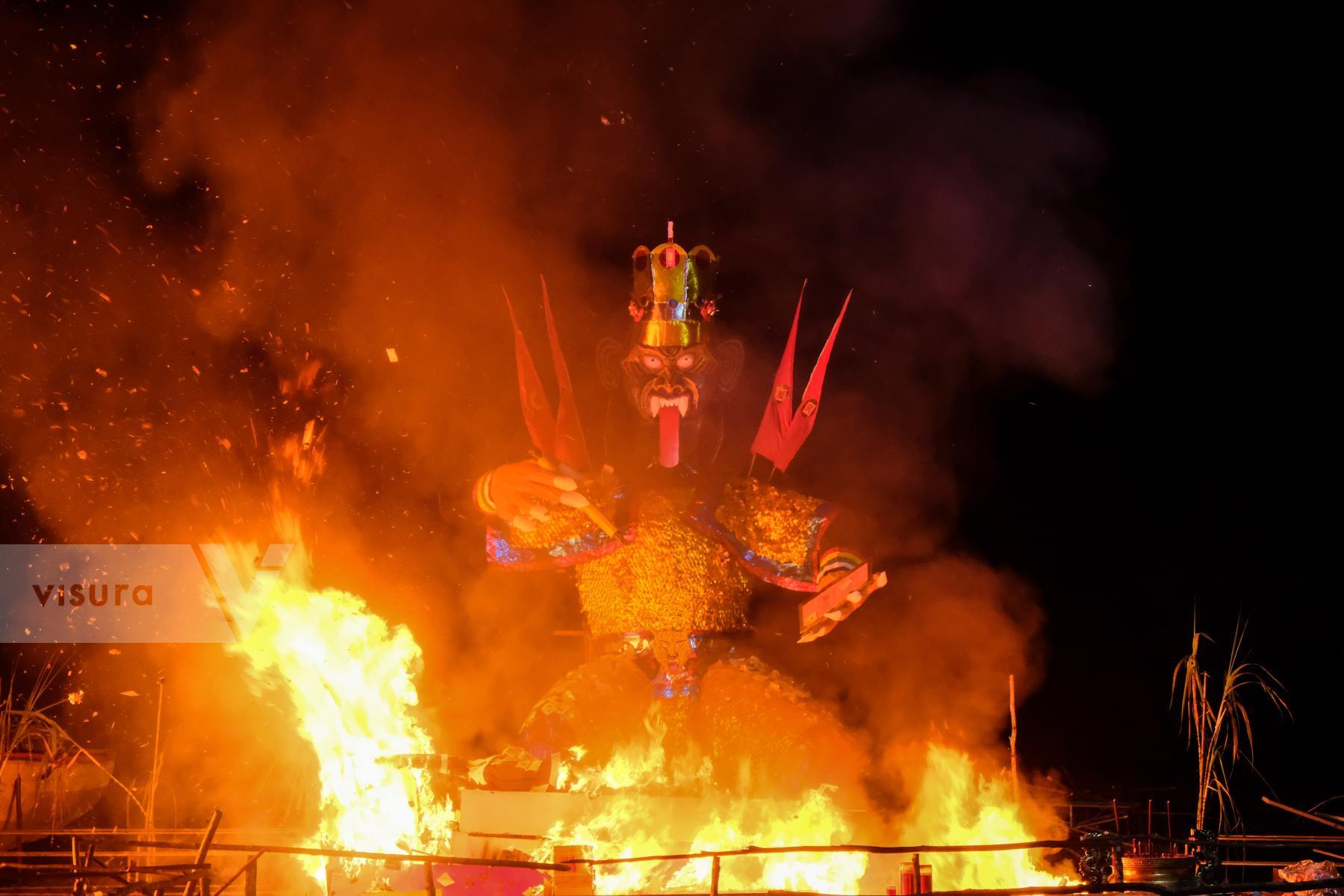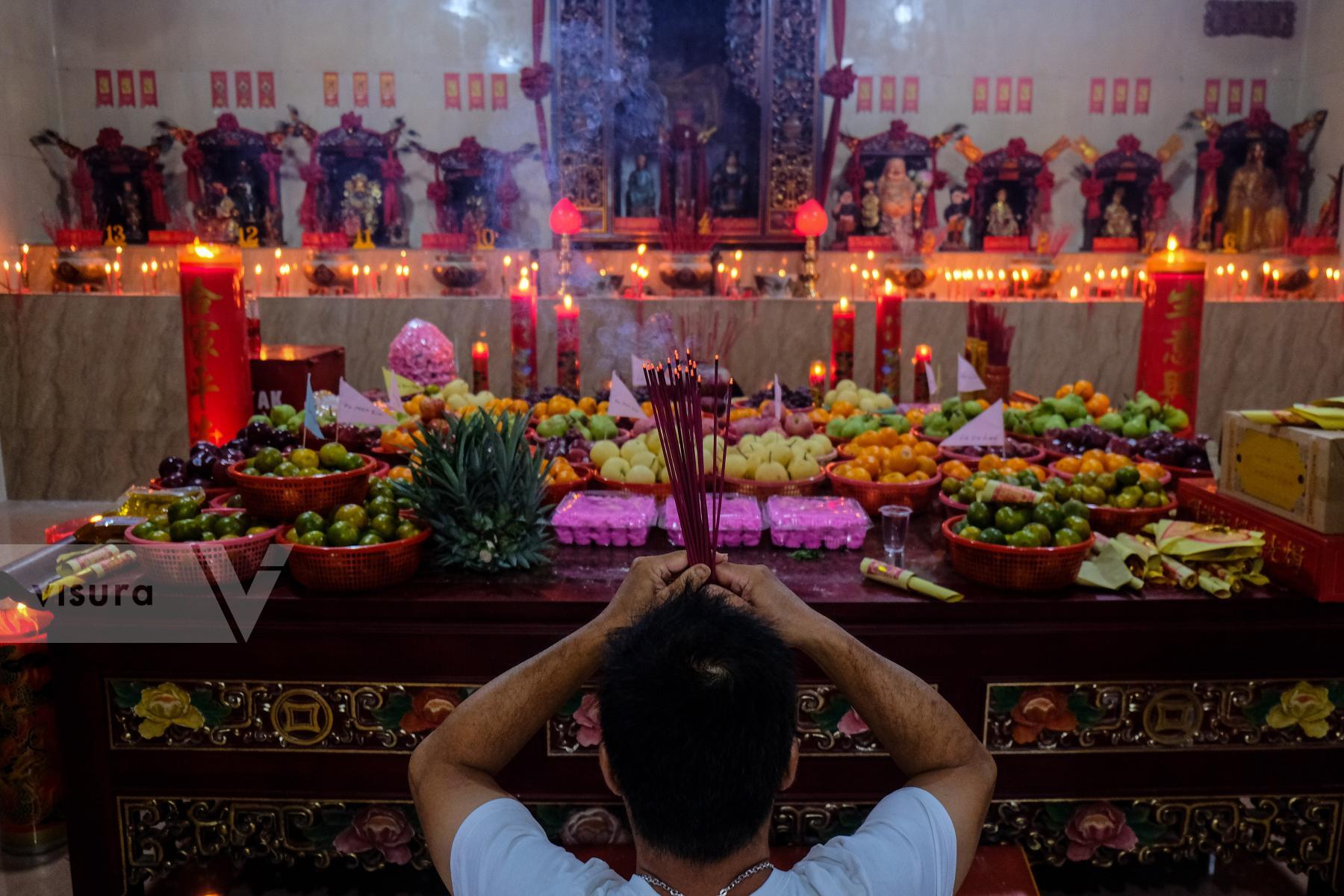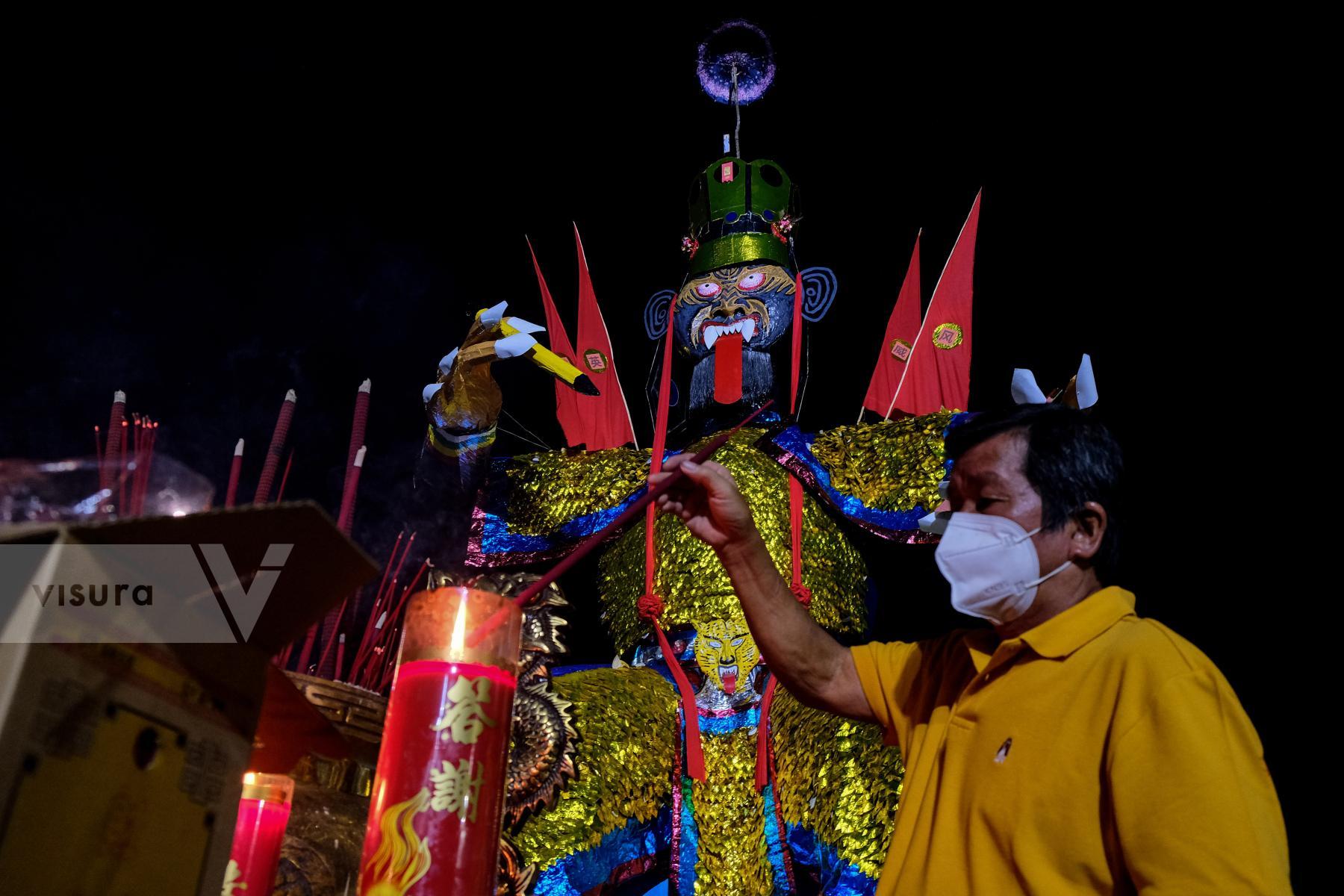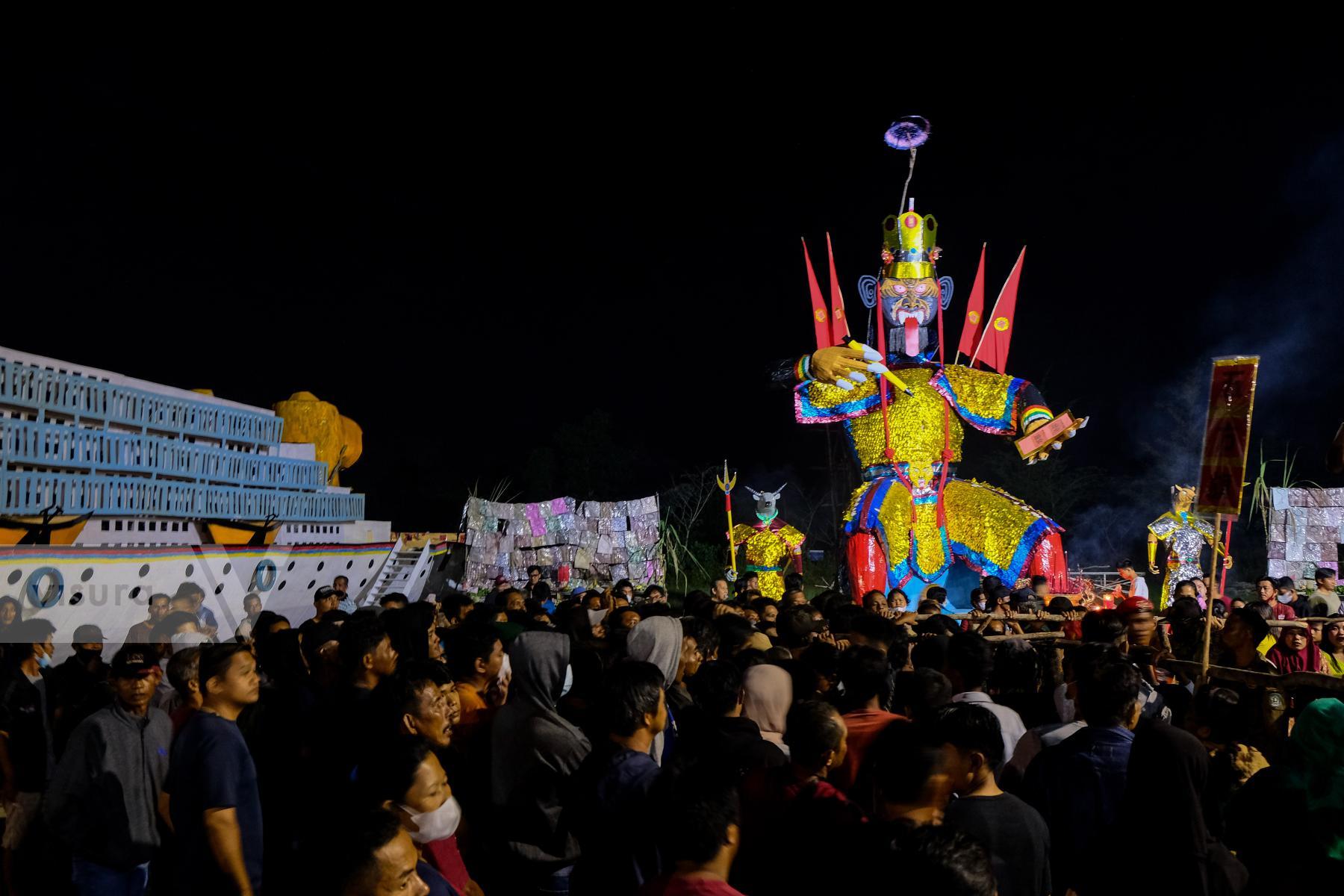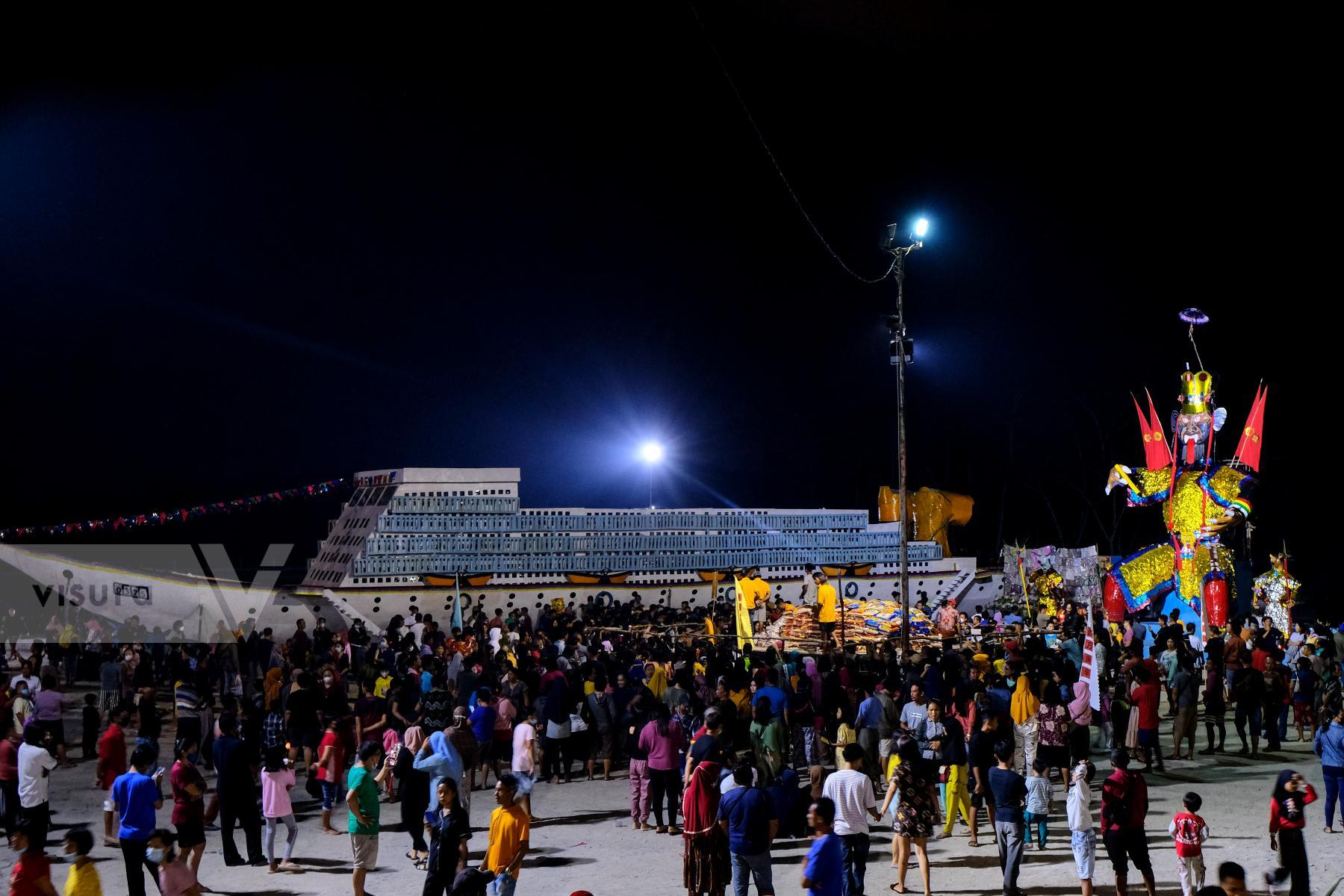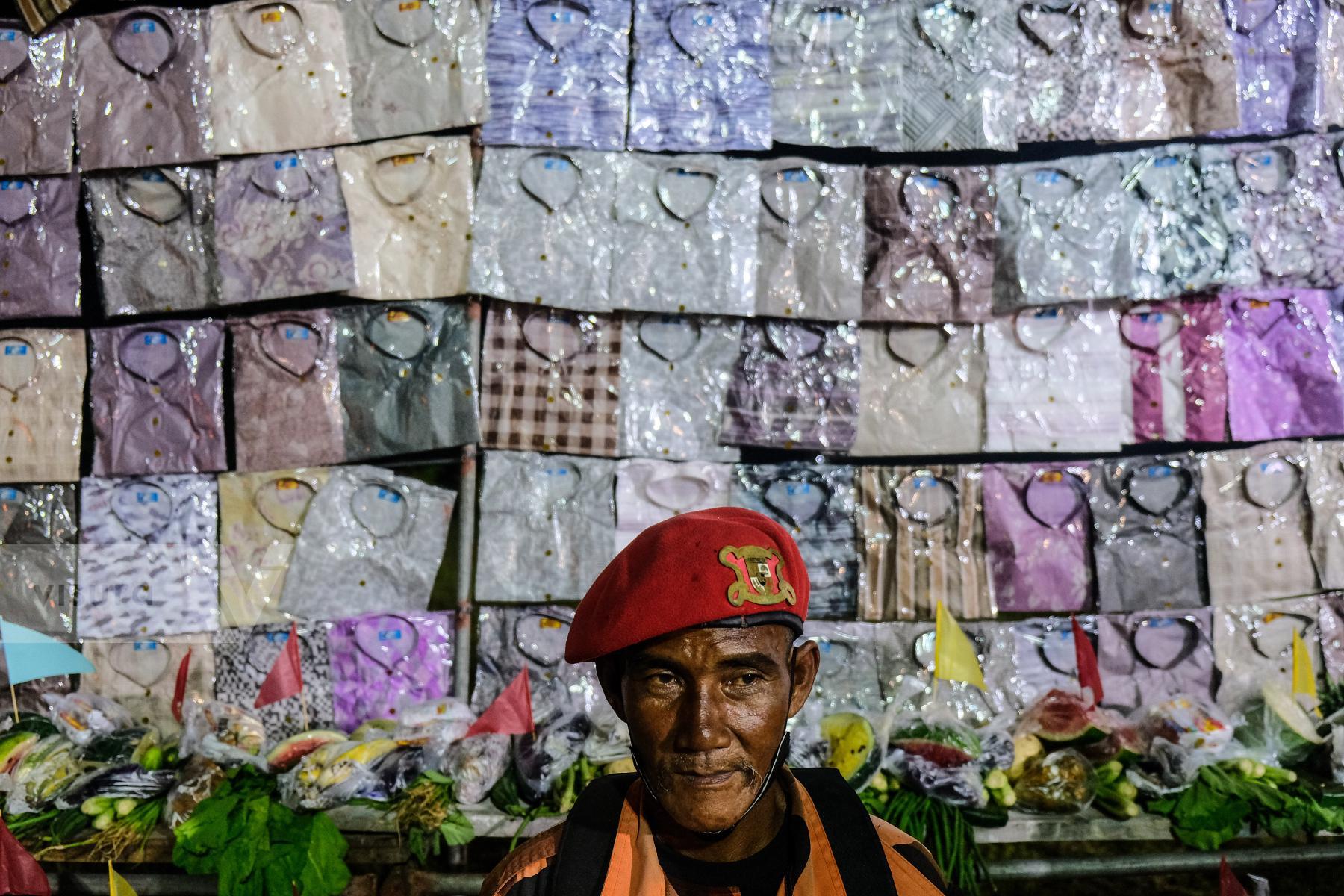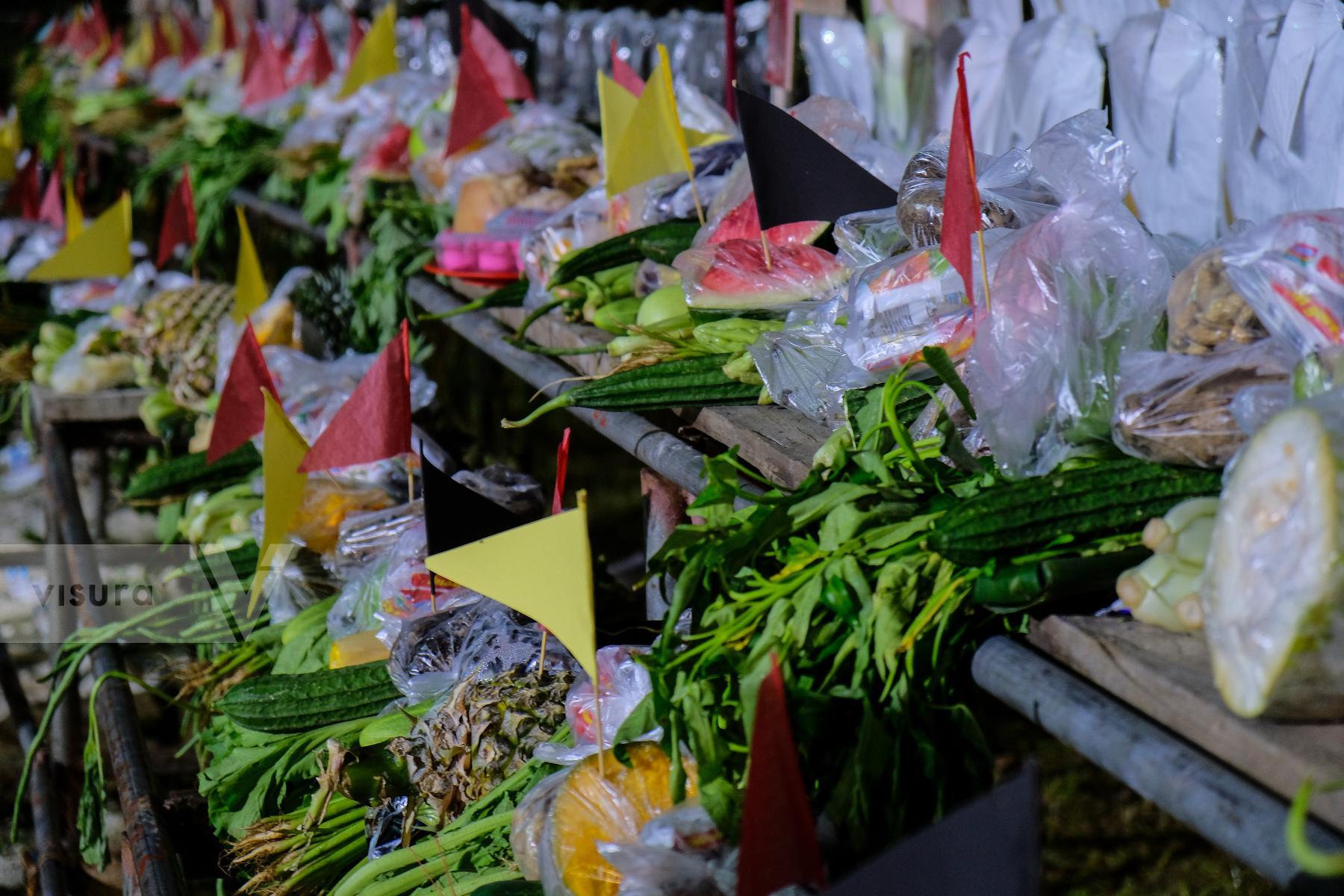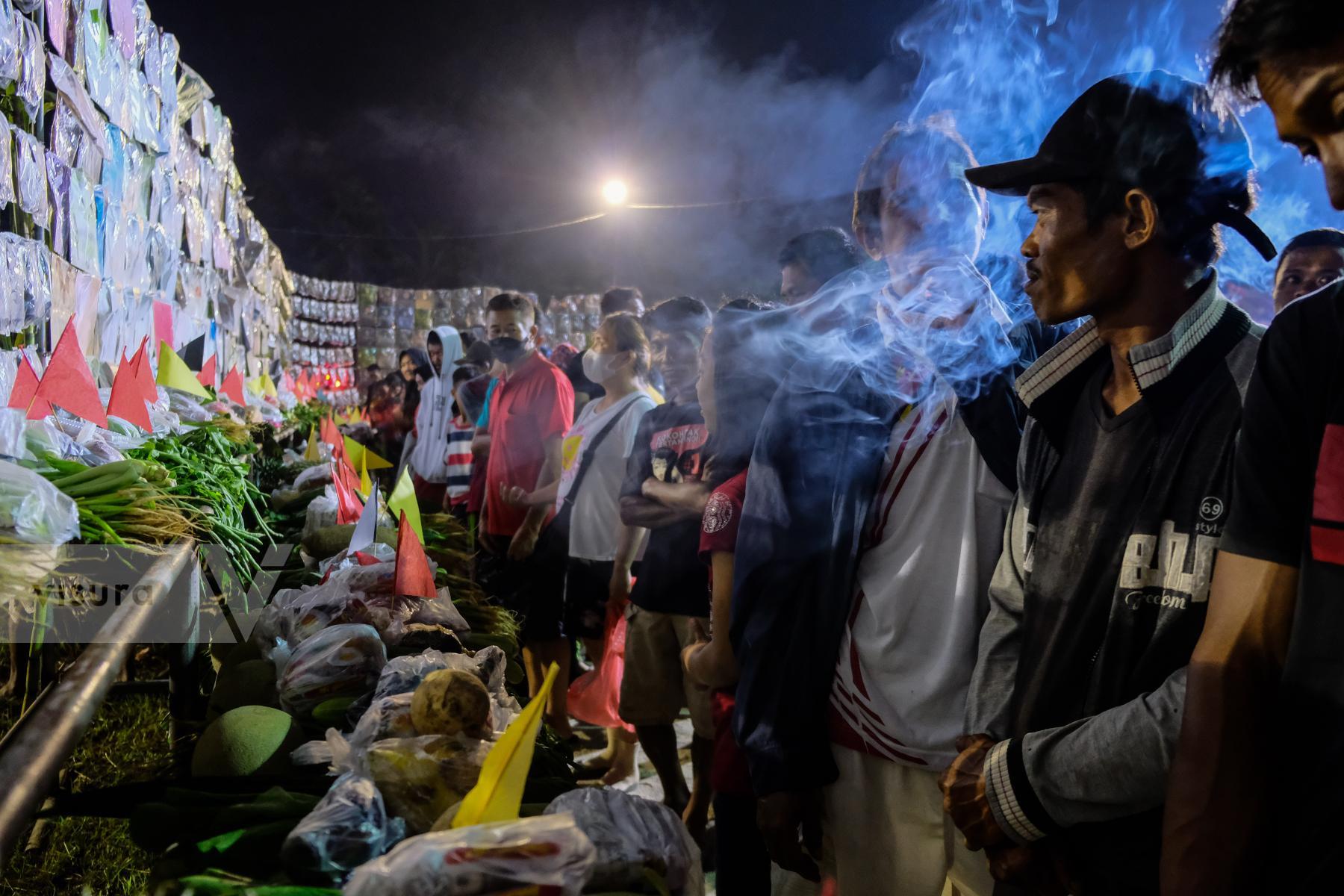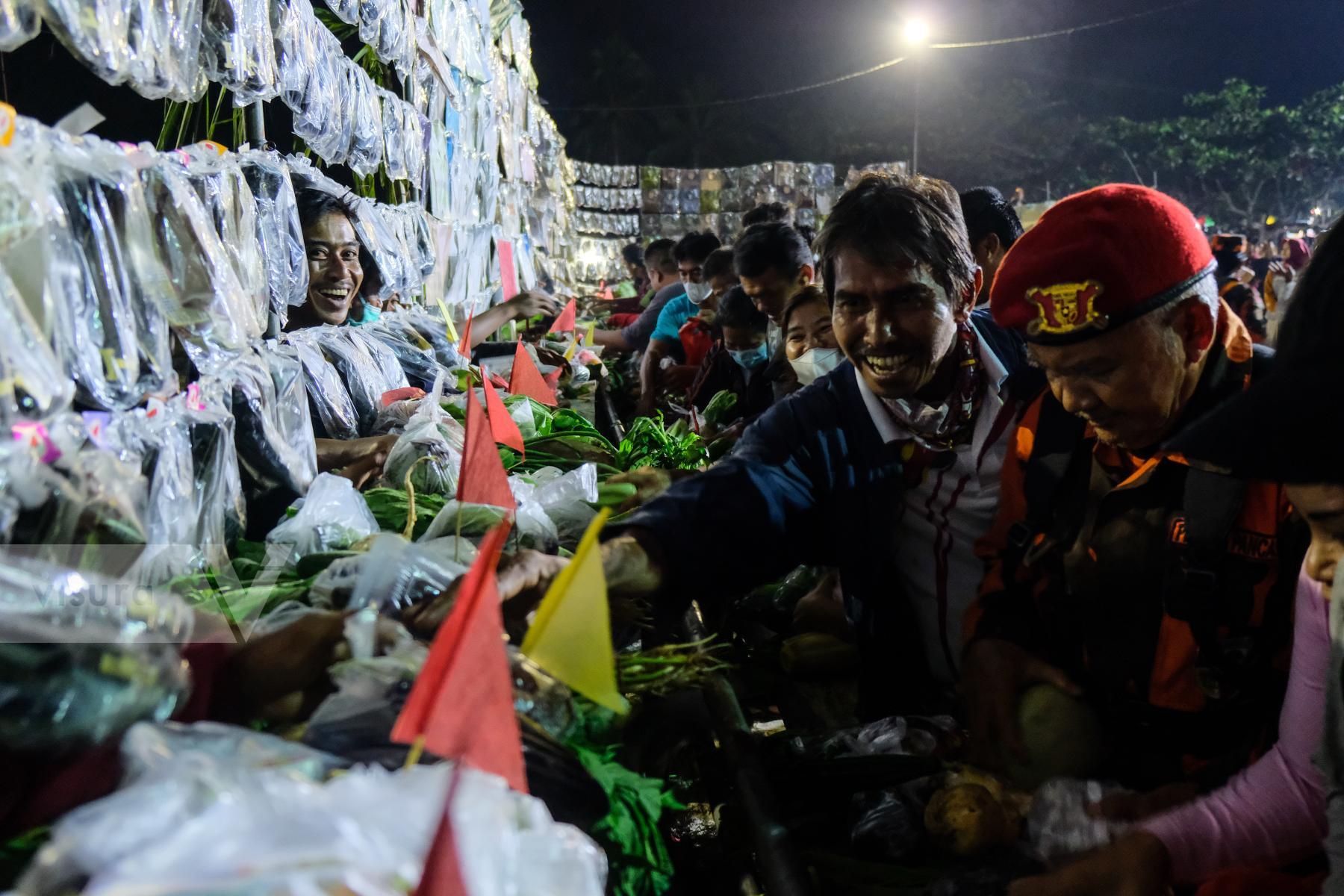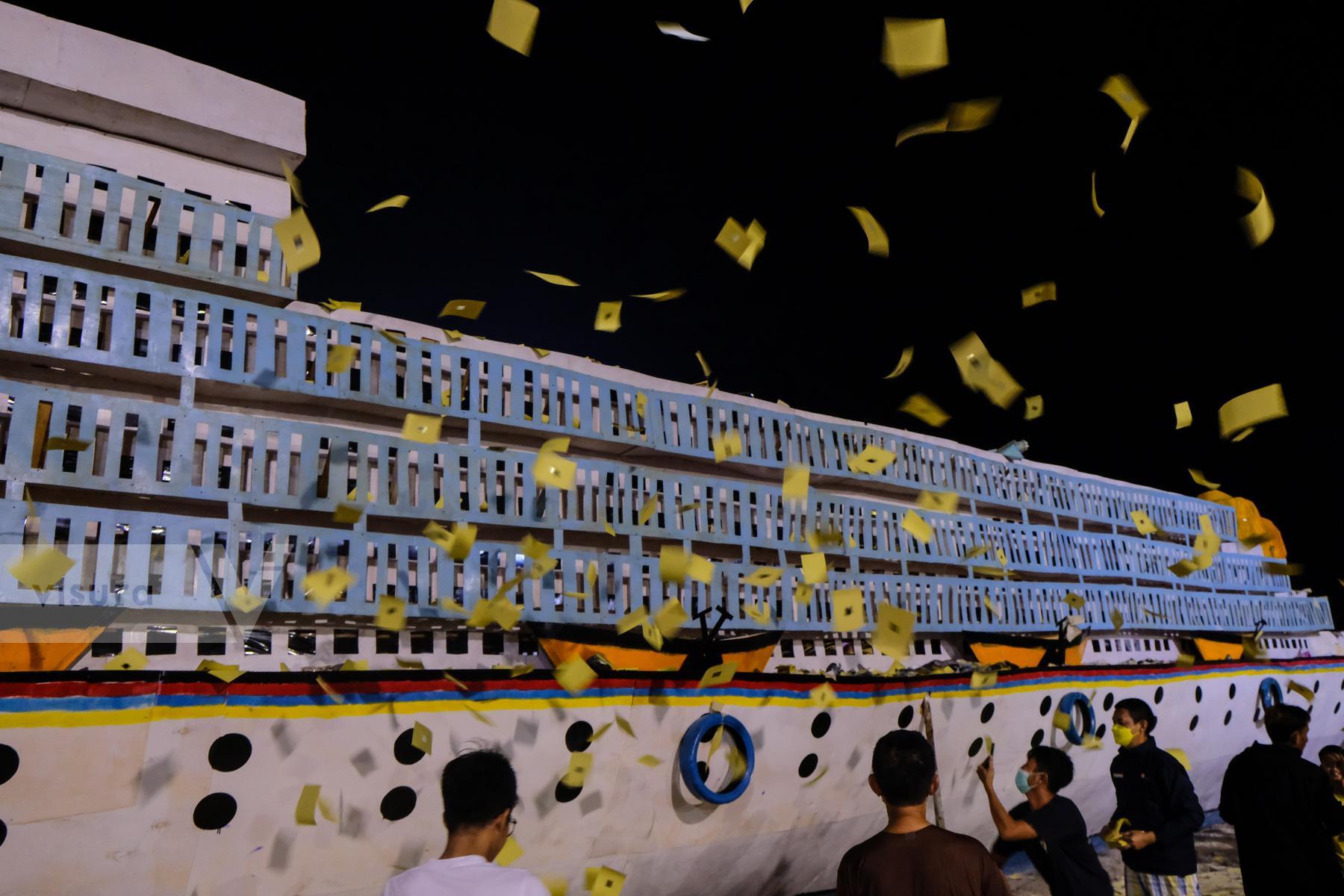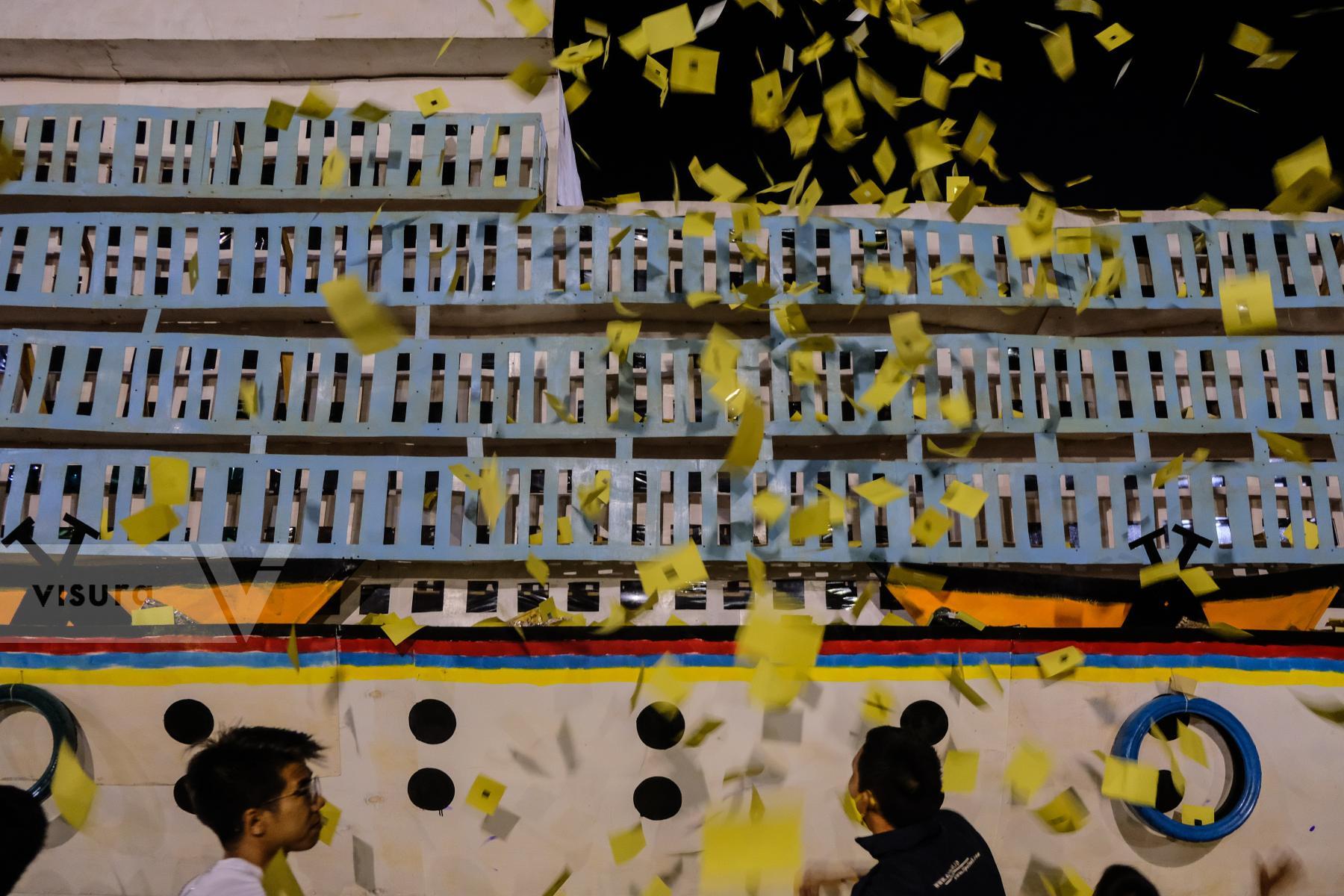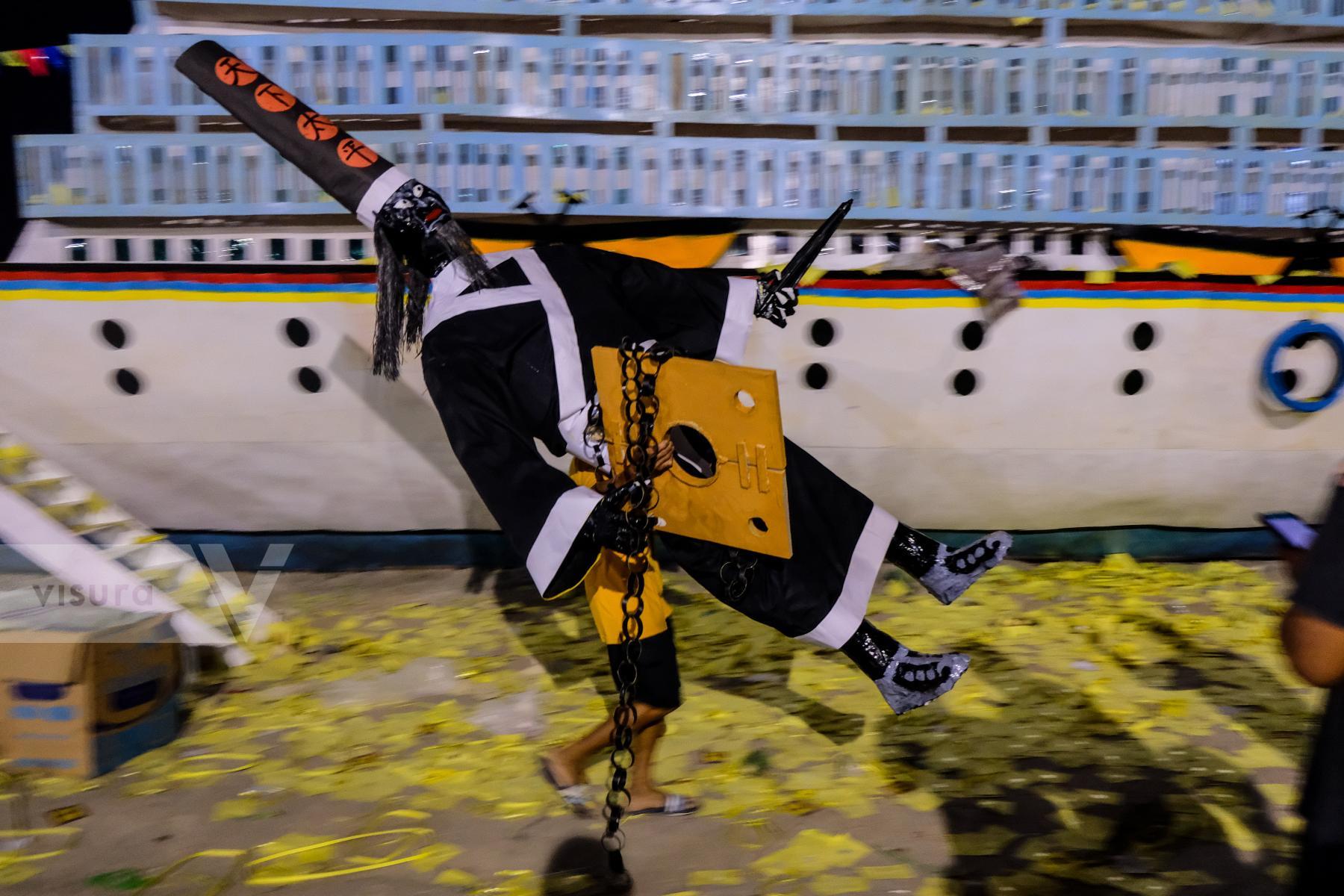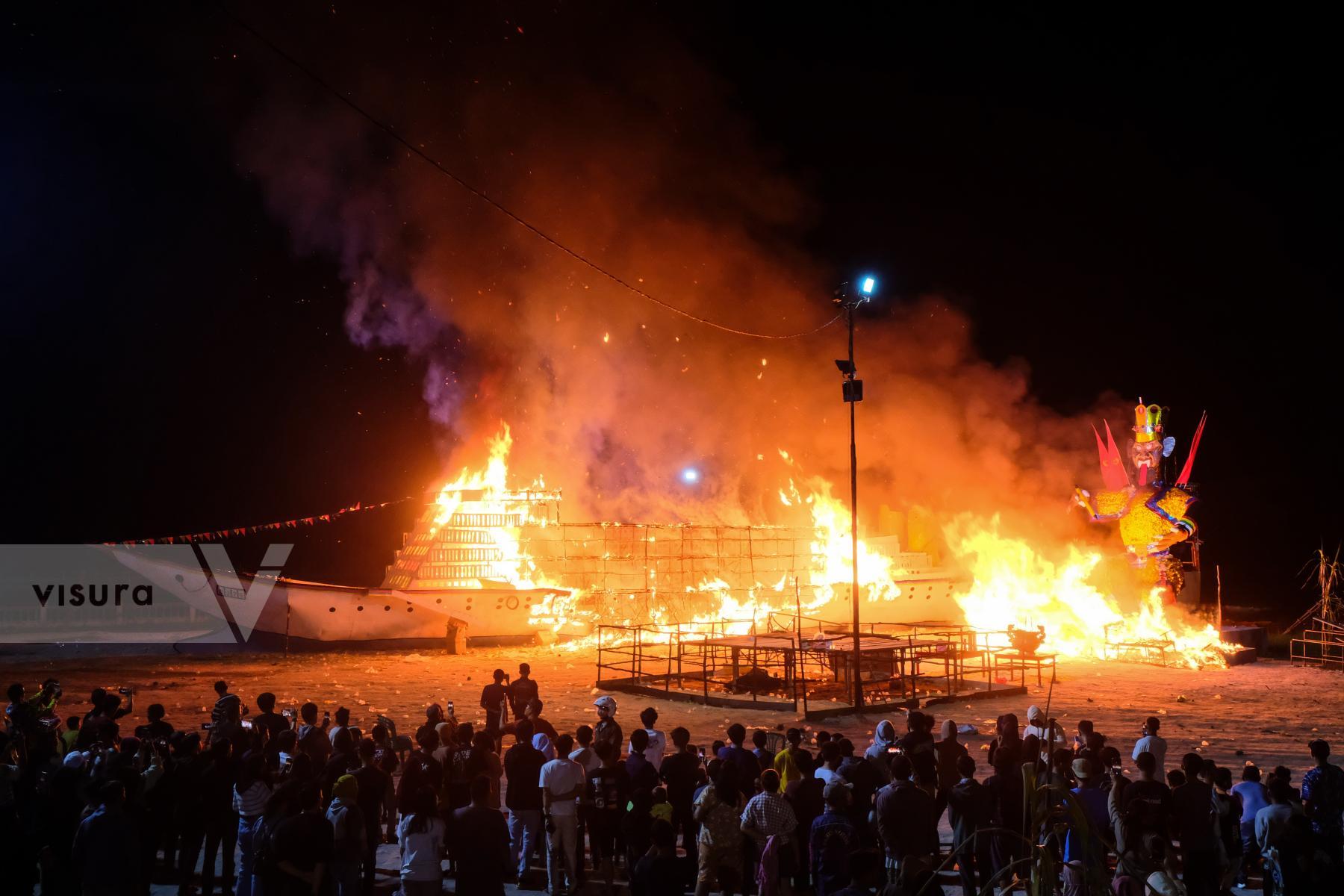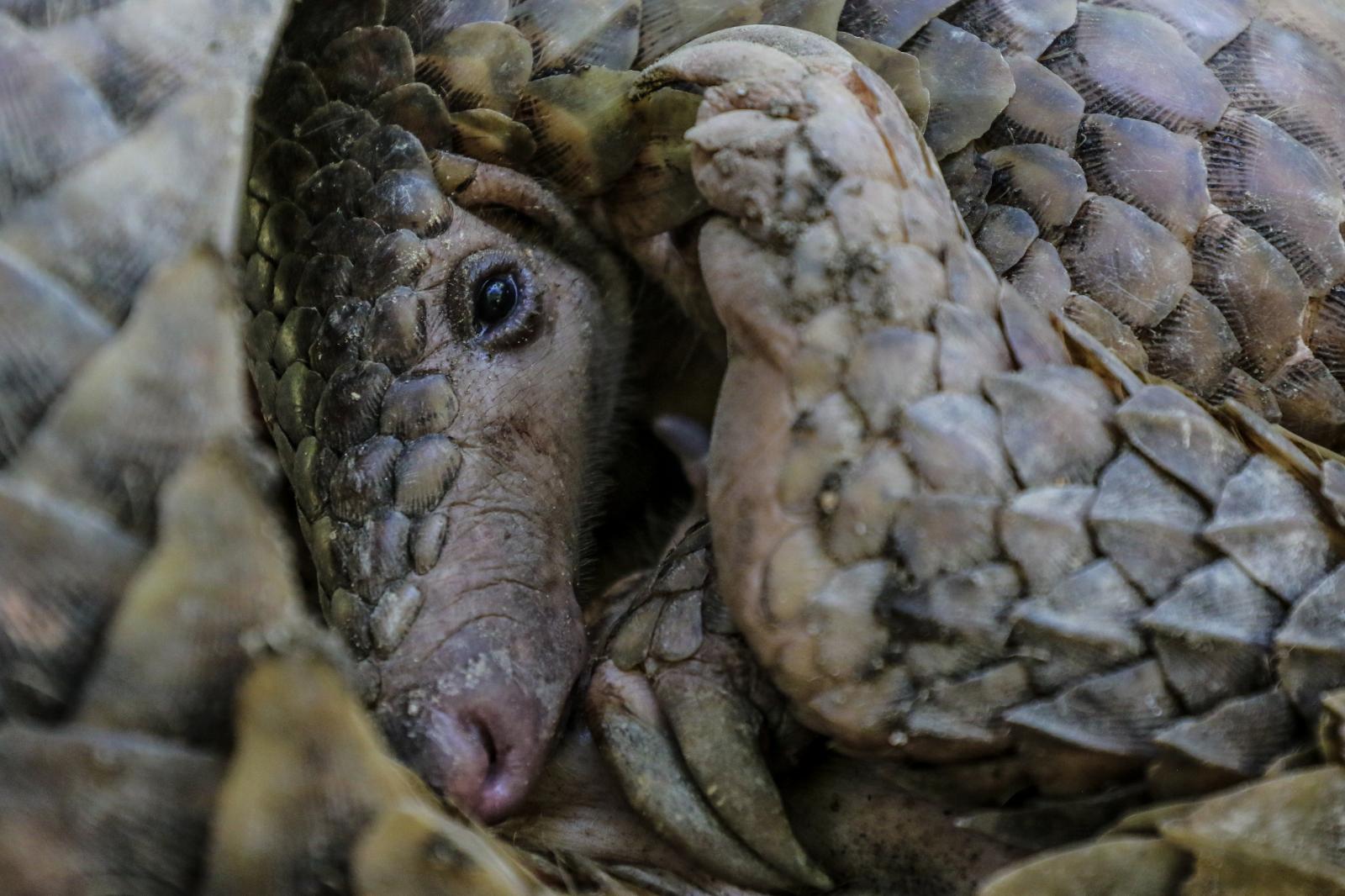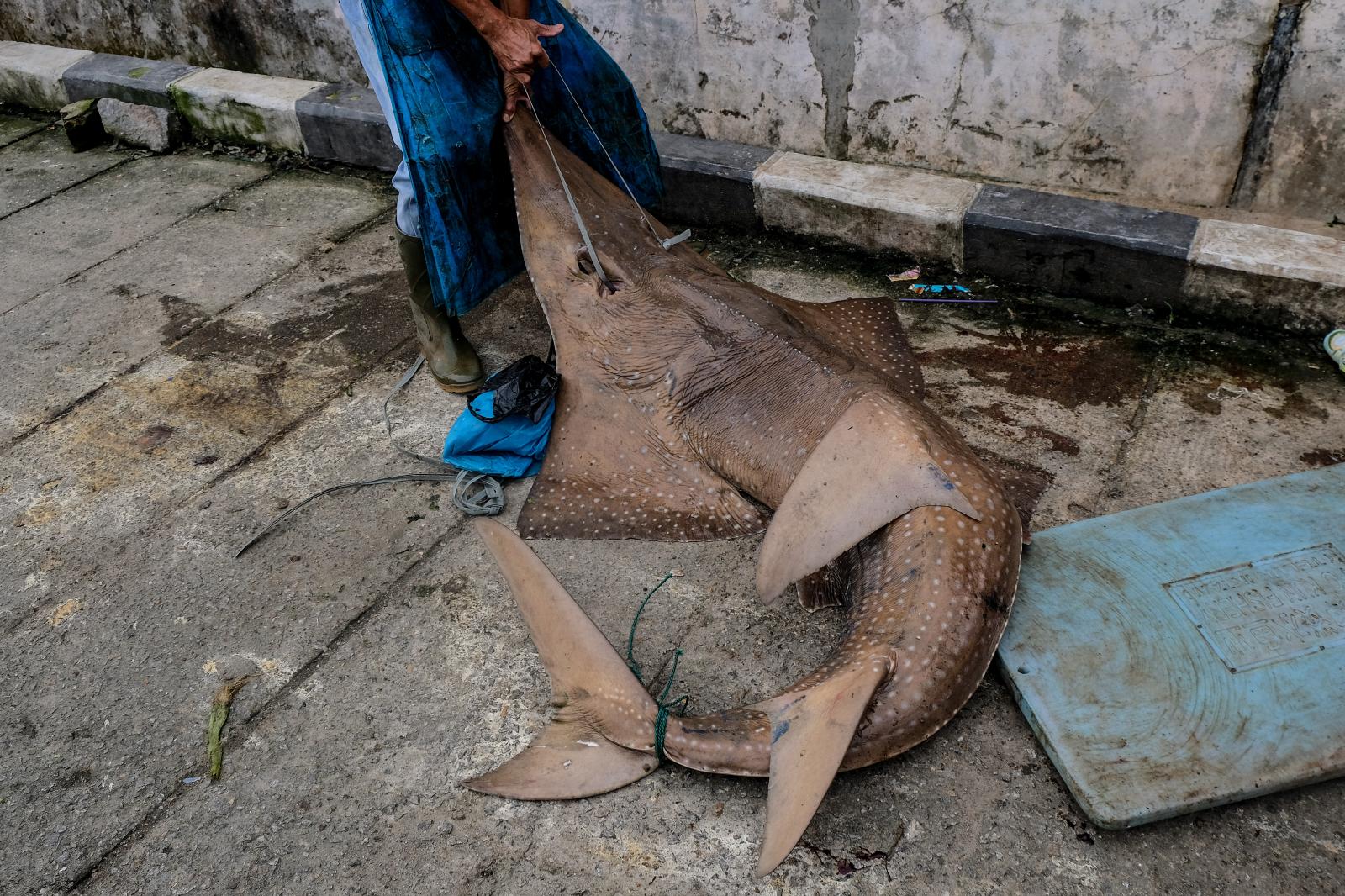The Chit Ngiat Pan, Chinese Tradition Leading Spirits to the Afterlife
Location: Indonesia
Project Date: Sep 10, 2022
Caption:
As a part of Ghost festival paper lanterns shaped as boats and the Chinese deity “Thai Tse Ja” are set on fire.
Size: 3963h x 5944w
Caption:
A worshipper pray at Temple Fuk Tet Miaw, Central Bangka Indonesia before doing The Chit Ngiat Pan ritual.
Size: 4000h x 6000w
Caption:
A worshipper pray at a statue of the Chinese deity Thai Tse Ja or "the King of the Afterlife", during The Chit Ngiat Pan ritual.
Size: 4000h x 6000w
Caption:
People gather near a replica of a ship and a statue of a god named Thai Tse Ja.
Size: 4000h x 6000w
Caption:
People gather near a replica of a ship and a statue of a god named Thai Tse Ja.
Size: 4000h x 6000w
Caption:
A man guard near the altar during the Chit Ngiat Pan ritual.
Size: 4000h x 6000w
Caption:
Vegetables, meat, rice, and snacks that have been prepared as part of the ritual.
Size: 4000h x 6000w
Caption:
People gather for snatch food at the Thai Tse Ja altar.
Size: 4000h x 6000w
Caption:
With a bell sign, snatch food started.
Size: 4000h x 6000w
Caption:
Chinese Indonesians toss fake money to honor their ancestors
Size: 4000h x 6000w
Caption:
Chinese Indonesians toss fake money to honor their ancestors
Size: 4000h x 6000w
Caption:
The replica of the god statue is prepared to be burned, a sign that the god will return.
Size: 3689h x 5533w
Caption:
As a part of Ghost festival paper lanterns shaped as boats and the Chinese deity “Thai Tse Ja” are set on fire.
Size: 3911h x 5866w
Project Text
The Chit Ngiat Pan, Chinese Tradition Leading Spirits to the Afterlife.
Chinese in Bangka Belitung, Indonesia, they carry out the tradition of celebrating Chit Ngiat Pan, also called Sembahyang Rebut. This tradition is celebrated by the Chinese every year in the seventh month on the 15th day of the Chinese calendar.
The Chit Ngiat Pan celebration begins with praying at the temple to pray for the ancestral spirits, burning a replica of a statue of a deity named Thai Tse Ja, and preparing offerings of food, meat, rice, and snacks as part of the ritual.
According to the Chinese in Bangka Belitung, Indonesia, the door to the afterlife is being opened so that the spirits wander and need food. Thai Tse Ja is the King of the Afterlife, considered to be the controller of these spirits. The Thai Tse Ja is symbolized by a large statue in a sitting position holding a book and pencil, which is believed to be recording the spirits wandering around the earth.
The preparation for the Chit Ngiat Pan celebration takes a long time and costs a lot of money. The taller and bigger the Thai Tse Ja statue is, the more it symbolizes the prosperity around the temple. The Thai Tse Ja statue is also decorated with flags and umbrellas. Umbrellas are one of the auction items that are believed to bring prosperity and protection to those who buy them.
Finally, the Chit Ngiat Pan ritual is performed at midnight. People snatch food at the Thai Tse Ja altar.
When finished, the Thai Tse Ja Statue was burned. This is a sign that the wandering spirit has been brought home by Thai Tse Ja to the afterlife.
The meaning of Chit Ngiat Pan, according to Chinese beliefs, aims to help each other by giving a little of what they have for the ritual. By carrying out these rituals, humans have reflected an attitude of mutual help and love for all God's creatures.
The COVID-19 pandemic, the Chit Ngiat Pan ritual is limited because people are prohibited from gathering. This year, Chit Ngiat Pan ritual has returned, Chinese citizens who are excited again pray for each other and pray for ease and sustenance in the following year.
The COVID-19 pandemic, the Chit Ngiat Pan ritual was held in a limited manner because people were prohibited from gathering.
This year, the Chit Ngiat Pan ritual is held again, Chinese citizens are excited to be able to compete for food and pray for sustenance in the coming year.

